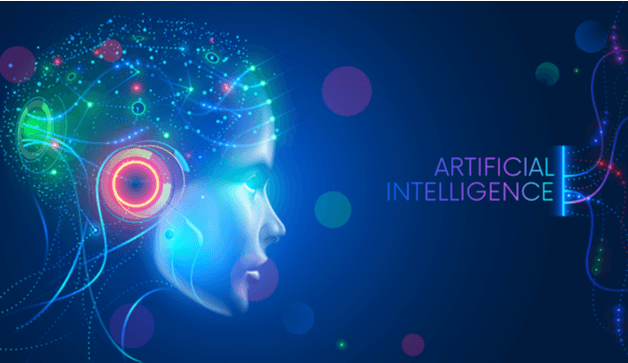
AI is no longer considered a science fiction tale. The market for machine learning and artificial intelligence (AI) has expanded rapidly. It’s also led to the emergence of various AI frameworks that make understanding AI much easier, as the community has grown.
Here Are The Top AI Frameworks For Artificial Intelligence Development In This Blog Post.
1. Tensor Flow
TensorFlow is a sophisticated open-source technology that enables deep learning and can be accessed even from a smartphone, thanks to its affiliation with Google.
Tensor flow is regarded as a useful tool for the construction of statistical programs. Machine models can be taught at any level of abstraction the user desires because it supports distributed training.
Features
- Multiple programming interfaces that can be scaled for ease of use
- With a large open-source community, they are major growth drivers
- Extensive, well-documented instructions are available for use by individuals
2. Microsoft CNTK
Microsoft CNTK is an open-source framework based on neural networks that allow text, message, and voice reconstruction and is faster and more adaptable.
A speedier overall assessment of the machine models, while maintaining correctness, provides an efficient scaling environment.
Features
- To ensure scalability, high-level integration, and efficiency, the system has been designed to be extremely well-optimized.
- Components such as hyperparameter tweaking supervised learning and reinforcement learning models as well as CNN’s and RNNs are all built-in to the algorithm.
- Efforts are made to maximize the use of available resources.
( Also Read: A Complete Guide on Ethical AI )
3. Caffe
Preloaded neural networks are included in Caffe, which is a deep learning network. If your deadline is looming, this should be your first choice.
In addition to its image processing capacity, this framework offers extensive MATLAB support.
Features
- Each model is written in a simple plaintext schema
- Because it comes preloaded, it works quickly and efficiently.
- A thriving open source community where people may share ideas and work together on new projects.
4. Theano
This framework facilitates deep learning research and is capable of offering accuracy for networks that require high processing capacity through the use of GPUs. Theano, for example, has the power to do multi-dimensional array computations.
Theano is based on python, a proven programming language when it comes to speeding up processing and responding to requests.
Features
- The dynamic generation of code speeds up the evaluation of expressions.
- Even at low numbers, it has a high accuracy ratio.
- Using Theano’s unit testing functionality, the user may evaluate their own code and troubleshoot bugs more effortlessly.
5. Amazon machine learning
Self-learning tools can benefit from Amazon machine learning, which is a hot topic in the AI frameworks field.
In addition to AWS, S3, and Amazon Redshift, this platform already has a large user base. The model is administered by Amazon and undergoes three operations: data analysis, model training, and evaluation.
Features
- No matter if you’re a novice, a data scientist, or a developer, AWS has a set of tools just for you.
- To provide the highest level of security, all data is encrypted.
6. Torch
Numerical calculations can be performed using the Torch, an open-source framework Many algorithms are available to speed up the creation of deep learning systems.
Facebook and Twitter use it heavily in their artificial intelligence research. It has been found that PyTorch is a more efficient and stable Python framework.
Features
- Neural network models use optimization techniques, the majority of which are quantitative in nature.
- The use of a graphics processing unit (GPU) is extremely efficient.
- The app is compatible with both iOS and Android devices.
7. Accord.Net
It is possible to build neural networks for audio and visual processing with Accord.net, a C# framework.
Computer vision applications, signal processing, and statistical applications can all benefit from this technology.
Features
- As it was started in 2012, the codebase is mature and well-tested.
- Get your application up and running quickly with a complete set of sample models and datasets provided by this package
8. Apache Mahout
Apache Mahout, an open-source machine learning framework, attempts to construct scalable frameworks. Data scientists and engineers can use it to implement new machine learning algorithms without having to worry about APIs.
Features
- known for its Scala DSL, which is extremely mathematically expressive.
- Adds support for distributed backends with multiple backends.
- Because Java libraries are used, the computations are performed much more quickly.
9. Spark MLib
Java, Python, and R are all supported by the Apache Spark MLib framework. Using Hadoop processes, classification, regression, and clustering techniques can be implemented.
Features
- One of the most important aspects is speed, which is supposedly 100 times faster than MapReduce.
- Spark is extremely adaptable and may be used in a variety of different computer scenarios.
10. Scikit-Learn
In the Python community, Scikit-learn is regarded as one of the greatest accomplishments. In addition to handling data mining quickly, this machine learning framework also provides support for a variety of real-world tasks. SciPy, Numpy, and matplotlib are some of the building blocks of this program.
Features
- It is well-known for its cross-validation and supervised and unsupervised learning techniques.
- Scikit-learn is primarily built-in Python, however, it utilizes some Cython-based core algorithms for speed.
- It is capable of handling several duties without slowing down.
11. MXNet
MXNet is an open-source deep learning framework with a high degree of scalability. JavaScript, C++, Python, and Julia are all supported by this framework. Deep neural networks can be trained and deployed using this platform. It enhances model training speed because of faster computation.
Deep learning algorithms benefit from their adaptability, speed, and efficiency.
Features
- Multiple GPU modes and GPU support are provided by MXNet.
- It works with many kinds of devices.
- C++, JavaScript, Scala, Python, and R are all supported languages.
It is our goal that the information above will assist you in deciding which AI frameworks to use for your next modern application.
A specialized online course may be a good option if you are a developer and want to master deep learning to get into the field of artificial intelligence.



